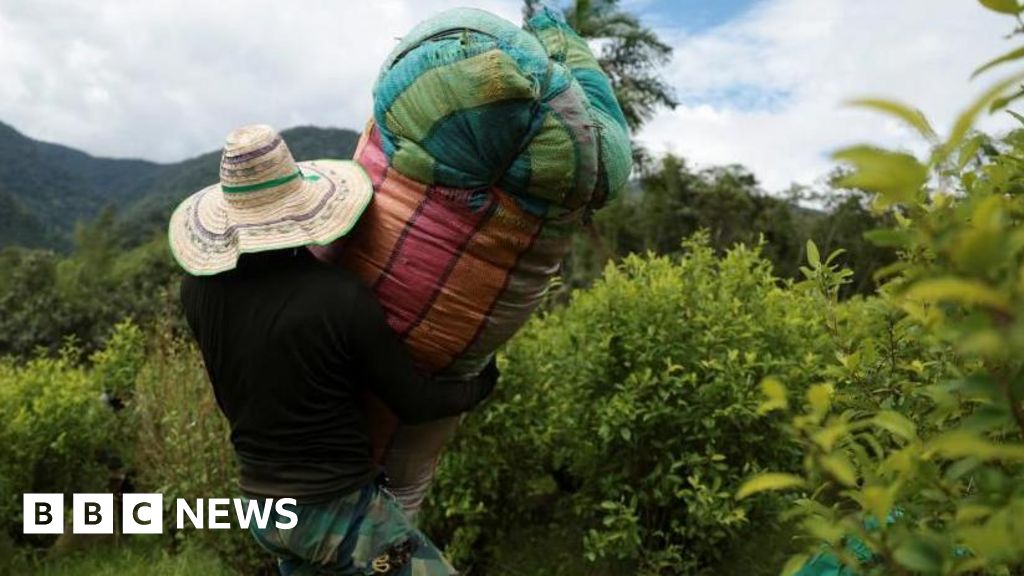By Vanessa Buschschlüter
Copyright bbc

Interior Minister Armando Benedetti told local radio that his government would stop the purchase of US arms “from this moment on”.
The other countries the US said had failed to meet their targets were Afghanistan, Bolivia, Myanmar and Venezuela.
Colombia was added to the list for the first time since 1997.
The move is likely to further sour relations between its left-wing government and the Trump administration.
President Petro took to social media to respond to the US allegation that during his time in office the area planted with coca bushes and the production of cocaine had reached record levels.
Coca leaves are the key ingredient in cocaine and Colombia has long been the top producer of the illegal drug.
A survey by the United Nations Office on Drugs and Crime (UNDOC) found that coca bush cultivation had increased by 10% in 2023. The figures for 2024 are due to be released next month.
But Petro insisted that it had been during the government of Iván Duque, his predecessor in office who governed from 2018 to 2022, that the area planted with coca saw large increases.
According to figures released by the Colombian presidency, a record 1,764 tonnes of cocaine were seized by government security forces between August 2022, when Petro came into office, and November 2024. Drug seizures have continued at a high level in 2025, official tallies suggest.
Petro also said that in order for coca cultivation to decrease, what was needed was for demand for cocaine to go down in the US and in Europe.
The US on the other hand laid the blame firmly at Petro’s door, saying that the president’s peace talks with several armed groups – many of which finance themselves through drug trafficking – had hindered the fight against drugs.
“His failed attempts to seek accommodations with narco-terrorist groups only exacerbated the crisis,” the presidential determination submitted to US Congress said.
The document goes on to praise the “skill and courage” of Colombia’s security forces in confronting criminal groups.
It then concluded that “the failure of Colombia to meet its drug control obligations over the past year rests solely with its political leadership”.
However, it does leave the door open to recertifying Colombia if its government “takes more aggressive action to eradicate coca and reduce cocaine production and trafficking”.



